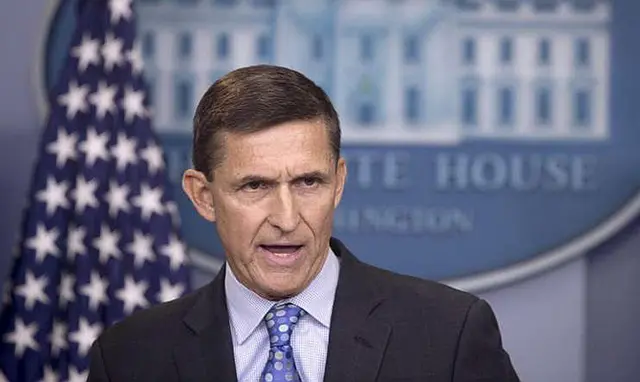Mr Michael Flynn, the national security adviser of the United States, resigned on Monday night (Feb 13) after it was revealed that he had misled Vice-President Mike Pence and other top White House officials about his conversations with the Russian ambassador to the US, according to a source close to the Trump administration.
Mr Flynn, who served in the job for less than a month, stepped down following days of reports that he had spoken to the ambassador about US sanctions against Russia in late December, weeks before President Donald Trump’s inauguration.
Mr Flynn had previously denied that he had any substantive conversations with Ambassador Sergey Kislyak, and Mr Pence repeated that claim in television interviews as recently as earlier this month.
But on Monday, a former administration official said the Justice Department last month warned the White House that Mr Flynn had not been fully forthright about his conversations with the ambassador. As a result, the Justice Department feared that Mr Flynn could be vulnerable to blackmail by Moscow.
Officials said Mr Pence had told others in the White House that he believed Mr Flynn lied to him by saying he had not discussed the topic of sanctions in a call with the Russian ambassador in late December.
Even the mere discussion of policy – and the apparent attempt to assuage the concerns of a US adversary before Mr Trump took office – represents a remarkable breach of protocol.
The FBI has been examining Mr Flynn’s phone calls as he has come under growing questions about his interactions with Russian officials and his management of the National Security Council. The blackmail risk envisioned by the Justice Department would stem directly from Mr Flynn’s attempt to cover his tracks with his bosses. The Russians knew what had been said on the call and thus, if they wanted Mr Flynn to do something, they could threaten to expose the lie if he refused.
The Justice Department’s warning to the White House was first reported on Monday night by The Washington Post.
In addition, the Army has been investigating whether Mr Flynn received money from the Russian government during a trip he took to Moscow in 2015, according to two defence officials.
Such a payment might violate the Emoluments Clause of the Constitution, which prohibits former military officers from receiving money from a foreign government without consent from Congress. The defence officials said there was no record that Mr Flynn, a retired three-star Army general, filed the required paperwork for the trip.
“The president is evaluating the situation,”White House press secretarySean Spicer told reporters on Monday. He said Mr Trump would be talking to Mr Pence and others about Mr Flynn’s future.
In a sign of the internal confusion over Mr Flynn’s status, the statement from Mr Spicer came shortly after the President’s counsellor Kellyanne Conway said in an interview on MSNBC that Mr Flynn had the “full confidence of the president”.
Mr Trump ignored questions about Mr Flynn’s fate that were shouted at him by reporters during an Oval Office swearing-in ceremony on Monday night for newly confirmed Treasury Secretary Steven Mnuchin.
The White House has examined a transcript of a wiretapped conversation that Mr Flynn had with Mr Kislyak in December, according to administration officials. Mr Flynn originally told Mr Pence and others that the call was limited to small talk and holiday pleasantries.
But the conversation, according to officials who have seen the transcript of the wiretap, also included a discussion about sanctions imposed on Russia after intelligence agencies determined that President Vladimir Putin’s government tried to interfere with the 2016 election on Mr Trump’s behalf.
Still, current and former administration officials familiar with the call said the transcript was ambiguous enough that Mr Trump could justify both firing or retaining Mr Flynn.
Mr Trump, however, has become increasingly concerned about the continued fallout over Mr Flynn’s behaviour, according to people familiar with his thinking, and has told aides that the media storm around Mr Flynn will damage the President’s image on national security issues.
White House officials have begun discussing the possibility of replacements, and Mr Trump is consulting General Jim Mattis, the secretary of defence and a retired four-star general. Among the options are General David Petraeus, former CIA director, and Mr Thomas Bossert, head of Mr Trump’s domestic security council.
Gen Petraeus, a retired four-star general, was forced out as director of the CIA because of an affair with his biographer, to whom he passed classified information. He would not need confirmation by the Senate as national security adviser.
Gen Petraeus is expected to be at the White House on Tuesday, said a senior administration official who was not authorised to discuss the meeting and spoke on condition of anonymity.
(THE NEW YORK TIMES)
 简体中文
简体中文

